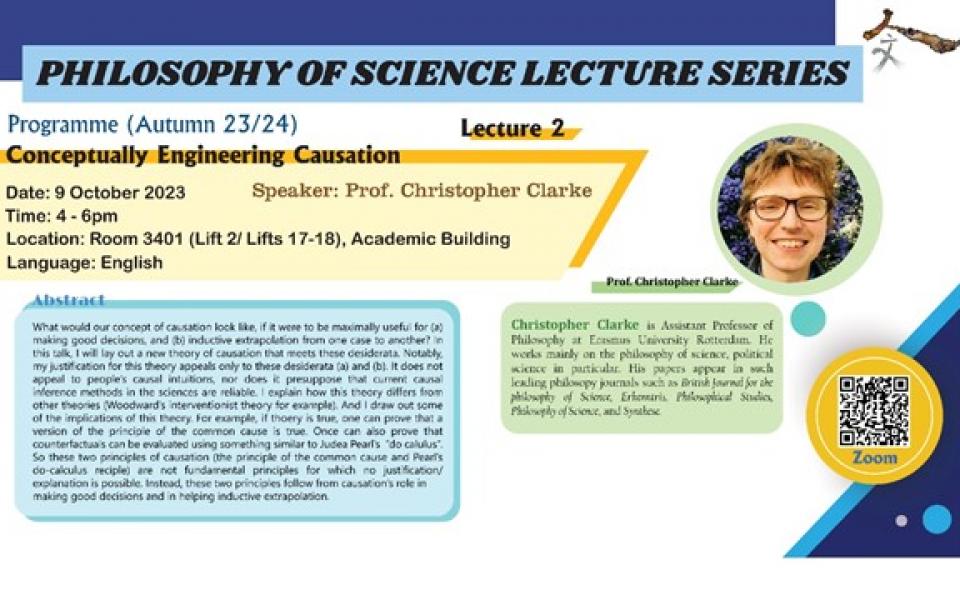Philosophy of Science Lecture Series - Conceptually Engineering Causation
Abstract:
What would our concept of causation look like, if it were to be maximally useful for (a) making good decisions, and (b) inductive extrapolation from one case to another? In this talk, I will lay out a new theory of causation that meets these desiderata. Notably, my justification for this theory appeals only to these desiderata (a) and (b). It does not appeal to people's causal intuitions, nor does it presuppose that current causal inference methods in the sciences are reliable. I explain how this theory differs from other theories (Woodward's interventionist theory for example). And I draw out some of the implications of this theory. For example, if theory is true, one can prove that a version of the principle of the common cause is true. One can also prove that counterfactuals can be evaluated using something similar to Judea Pearl's "do calculus". So these two principles of causation (the principle of the common cause and Pearl's do-calculus recipe) are not fundamental principles for which no justification / explanation is possible. Instead, these two principles follow from causation's role in making good decisions and in helping inductive extrapolation.
Biography:
Christopher Clarke is Assistant Professor of Philosophy at Erasmus University Rotterdam. He works mainly on the philosophy of science, political science in particular. His papers appear in such leading philosophy journals such as British Journal for the Philosophy of Science, Erkenntnis, Philosophical Studies, Philosophy of Science, and Synthese.
